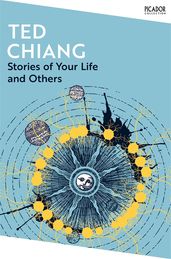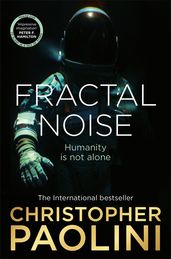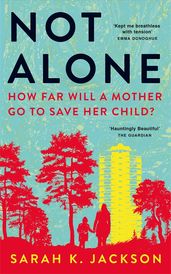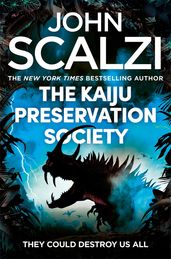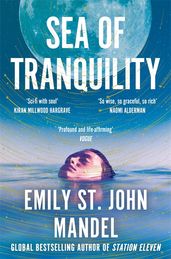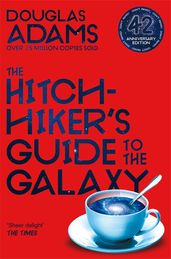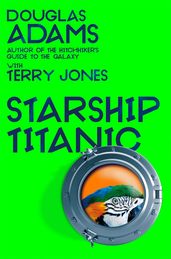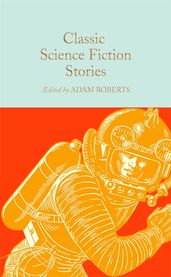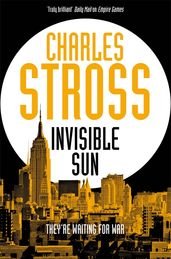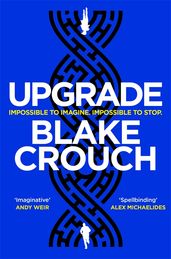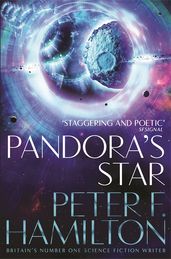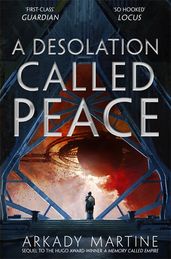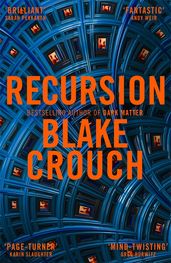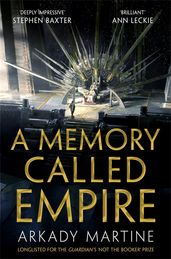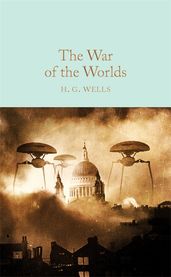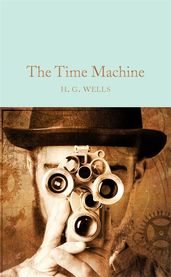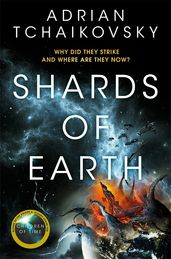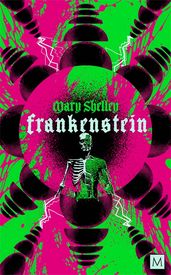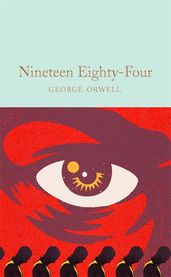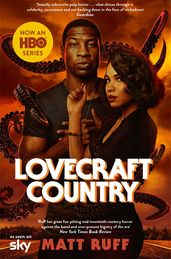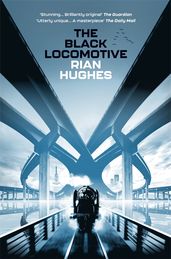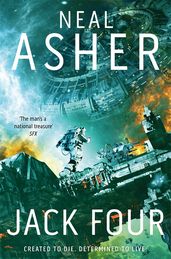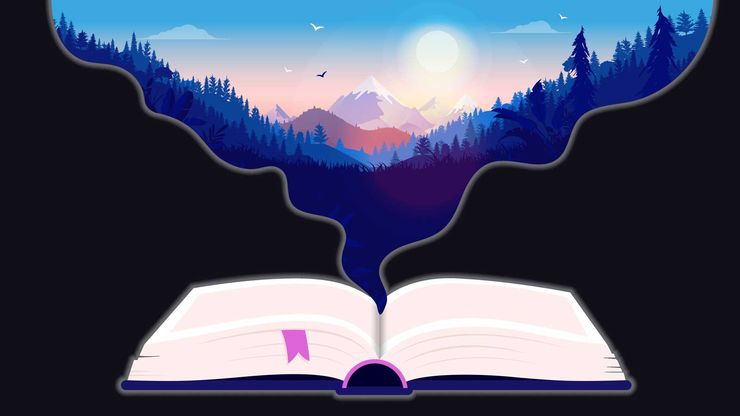The best sci-fi books of 2026, and all time
We take a look at our favourite sci-fi books, including brilliant new sci-fi reads from 2026 and 2025, and the best science fiction novels of all time.

From spectacular sequels and award-winning novels, to continuing adventures in science fiction's most popular universes, our list of sci-fi books includes some of the best new reads of 2026, the best of 2025 and our all-time picks. No matter what kind of science fiction fan you are – space opera, dystopian, or classic sci-fi – our edit is packed full of must-reads.
The best sci-fi books of 2026
Shroud
by Adrian Tchaikovsky
New planets are fair game to asset strippers and interplanetary opportunists – and a commercial mission to a distant star system discovers a moon that is pitch black, but alive with radio activity. Its high-gravity, high-pressure, zero-oxygen environment is anathema to human life, but ripe for exploitation. They named it Shroud. Under no circumstances should a human end up on Shroud’s inhospitable surface. Except a catastrophic accident sees Juna Ceelander and Mai Ste Etienne doing just that. If they escape, they’ll face a crew only interested in profiteering from this extraordinary world. If they escape. . .
Rose/House
by Arkady Martine
A house full of artificial intelligence isn't uncommon, even now. A house that is an artificial intelligence is, however, is rather more unusual. However, this house is locked at the behest of its now dead architect, Basit Deniau, and only Dr. Selene Gisil, a former protégé, is permitted to enter, once a year. Now, there is a dead person in the house. It is not Basit Deniau, and it is not Dr. Gisil. It is someone else. But the house won’t communicate any further.
‘An exquisitely creepy exploration of the boundaries of life, death, the real and the artificial’
— Adrian Tchaikovsky on Rose/House
The best sci-fi books of 2025
The Shattering Peace
by John Scalzi
John Scalzi returns with The Shattering Peace, the latest book in his Old Man's War series. After a decade of fragile harmony between Earth, the Colonial Union and the alien Conclave, tensions are once again threatening to erupt. Gretchen Trijillo, a seemingly ordinary bureaucrat, is thrust into the heart of a high stakes mission that could decide the fate of every world in the galaxy.
This Gilded Abyss
by Rebecca Thorne
Rebecca Thorne brings us a perfect mix of sci-fi, horror, mystery, and fantasy. Sergeant Nix Marr is a soldier with no interest in dredging up the past, especially not the kind that involves her ex, Princess Kessandra. But when Kessandra insists on recruiting her on a mission to help investigate a massacre in the underwater city of Fall, Nix is unable to refuse. Kessandra always gets her own way – which can mean she’s not always truthful. When it becomes clear that the investigation isn't about the massacre, but what caused it – an illness that turns victims into zombie-like-creatures – Nix’s only hope may be to put her trust in Kessandra, despite her lies.
When the Moon Hits Your Eye
by John Scalzi
Remember when you were kid you were told the moon was made out of cheese? Well now, suddenly and inexplicably, it is. For some, it’s an opportunity. For others, it’s time to question their life choices. How can the world stay the same in the face of such absurdity and uncertainty? Astronauts and billionaires, comedians and bank executives, professors and presidents, teenagers and patients at the end of their lives – they panic, they plan, they wonder and they hope. All in a story that goes all the places you’d expect, and to many others you could never anticipate.
The Bones Beneath My Skin
by TJ Klune
The Bones Beneath My Skin introduces Nate Cartwright, in the spring of 1995. Parentless, disowned by his older brother, and recently fired, he travels to Oregon, and his family's summer cabin. There he meets Alex, and a little girl who says her name is Artemis Darth Vader. They are not supposed to be here. But when it becomes clear just how powerful Art really is, Nate must decide whether to fight for her, or drown in his past.
Exodus: The Archimedes Engine
by Peter F. Hamilton
With Earth dying, humans are forced to flee and explore distant space in search of home. Finding Centauri, a cluster of habitable planets, the first group of settlers made their home and evolved into advanced beings. Thousands of years later they rule the star systems and treat humans, including young Finn, as their slaves. Seizing the chance to jump aboard an arriving ark ship to travel the universe, Finn sets off on a mission to search for freedom, and a better place for humans to call home. Set within the world of EXODUS, a new science-fiction RPG action-adventure game, Exodus: The Archimedes Engine is the first in a new duology from sci-fi legend Peter F. Hamilton.
World Walkers
by Neal Asher
War looms between alternate worlds and only one mutant can save the multiverse in World Walkers, the new standalone novel from Neal Asher. Set within the Owner universe, it’s the story of Ottanger, a rebel and mutant who, thanks to the experimentations of the totalitarian regime, develops the ability to jump between worlds. Utilising his new power to visit alternate realities, he sees a terrifying future for his world and realises he must stand up and fight against the power of the all-powerful Committee to have a chance of saving it.
Service Model
by Adrian Tchaikovsky
Meet CharlesTM, the latest in robot servant technology. Programmed to undertake the most menial household chores, Charles is loyal, efficient and logical. That is, until a fault causes him to murder his owner. Understandably perplexed, Charles finds himself without a master. Fleeing the household, he enters a world he never knew existed. Here an age-old human hierarchy is disintegrating into ruins, and an entire robot ecosystem devoted to its wellbeing is struggling to find a purpose. Charles is about to discover that sometimes all it takes is a nudge to overcome the limits of your programming. But can he help fix the world, or is it too badly broken?
The best sci-fi books of all time
Stories of Your Life and Others
by Ted Chiang
A sci-fi classic in a brand-new edition. From a soaring Babylonian tower that connects a flat Earth to the firmament above, to a world where angelic visitations are a wondrous and terrifying part of everyday life; from a neural modification that eliminates the appeal of physical beauty, to an alien language that challenges our very perception of time and reality, Chiang’s unique imagination invites us to question our understanding of the universe and our place in it. Stories of Your Life and Others is Ted Chiang's masterful debut collection.
Leech
by Hiron Ennes
A masterpiece of gothic sci-fi, Leech is unlike anything you've read before. In an isolated chateau, the baron's doctor has committed suicide, and the Interprovincial Medical Institute sends out a replacement. But the new physician soon discovers that his predecessor was hosting a parasite, which should have been impossible, as the physician was already possessed – by the Institute. For hundreds of years, the Institute has taken root in young minds and shaped them into doctors to protect humanity from the horrors their ancestors unleashed, but now there’s competition: a parasite is spreading.
Fractal Noise
by Christopher Paolini
On the planet Talos VII, twenty-three years before the events of To Sleep in a Sea of Stars, an anomaly is detected: a vast circular pit, with dimensions so perfect that it could only have been the result of conscious design. So a small team is assembled to learn more – perhaps even who built the hole and why. Their mission will take them on a hazardous trek to the very edge of existence. For xenobiologist Alex Crichton this opportunity is a desperate attempt to find meaning in an uncaring universe. Fractal Noise is the thrilling prequel to To Sleep in a Sea of Stars by Christopher Paolini.
Not Alone
by Sarah K Jackson
In the aftermath of a devastating microplastics storm that decimated humanity, Not Alone follows the journey of Katie and her son in a tale that intertwines heart-stopping adventure with the profound bond between a mother and child. Trapped within the confines of their apartment, they navigate a world where survival hinges on scavenging for sustenance. Katie, braves the dangers outside while Harry remains sheltered, oblivious to the truth of their existence. This remarkable debut delves into themes of love, trust, and hope while unmasking the imminent peril that looms over humanity as a whole.
The Kaiju Preservation Society
by John Scalzi
In New York, Jamie is a driver for food delivery apps, looking for any opportunity to escape his daily schedule. Then, after making a delivery to old acquaintance Tom, he gets the chance to escape more than just his delivery gig. Tom works for an animal rights organisation – but not any that you've heard of. Known as the 'Kaiju Preservation Society', Jamie unwittingly signs on with Tom to venture to the Earth of an alternate dimension, where massive dinosaur-like creatures called 'Kaiju' roam a human-free world. But they’re in trouble – the Society are not the only ones who have found their way to the Kaiju world. . .
Sea of Tranquillity
by Emily St John Mandel
It's 1912, and eighteen-year-old Edwin St. Andrew is on a journey across the Atlantic, having been exiled from society in England. Arriving in British Columbia, he enters a forest, mesmerised by the Canadian wilderness. All is silent, before the notes of a violin reverberate through the air. Two centuries later, and acclaimed author Olive Llewelyn is travelling over the earth, on a break from her home in the second moon colony. At the heart of her bestselling novel, a man plays a violin for spare change in the corridor of an airship terminal, as a forest rises around him. This compelling novel immerses the reader in parallel worlds, and multiple possibilities.
Exhalation
by Ted Chiang
Named in Barack Obama's 2019 summer reading list, this groundbreaking collection of science fiction short stories is the second from acclaimed author Ted Chiang. In these nine stunningly original and poignant stories, we encounter a portal through time in ancient Baghdad, a scientist who makes a shocking discovery that will affect all of humanity and a woman who cares for an AI ‘pet’ for over twenty years. Addressing, among others, essential questions around the nature of the universe and what it means to be human, this is science fiction writing at its most thoughtful.
The Hitchhiker's Guide to the Galaxy
by Douglas Adams
The Hitchhiker's Guide to the Galaxy began life as a Radio 4 show in 1978 and has since spawned adaptations across almost every format, making it a staple on every respectable list of the best sci-fi books. Following the galactic adventures of Arthur Dent after his house's untimely demolition to make way for a new hyperspace express route, this new edition of 'The Guide' features exclusive bonus archive material and a new introduction from Russell T. Davies. This classic science fiction novel is a must-read for fans of the genre.
Douglas Adams's Starship Titanic
by Terry Jones
From the minds of Douglas Adams and Terry Jones comes Starship Titanic. This is the 2023 edition of the hilarious novelization of the third-best adventure game of 1999. Get ready for the launch of the Starship Titanic, the grandest and most advanced spaceship ever built. But as architect Leovinus inspects the ship, he discovers alarming flaws: shoddy craftsmanship, malfunctioning cybersystems, and clumsy robots. The next day, as the galaxy watches, the ship starts its journey but quickly succumbs to a catastrophic failure. In mere moments, the ambitious project meets its end, setting the stage for an intriguing tale to unfold.
Classic Science Fiction Stories
by Adam Roberts
Bringing you aliens from outer space, intriguing inventions, zany future tech and whole imaginative worlds to explore, this collection of short stories is a treasure. From the 1750s to the start of the twentieth century, it includes work by star authors such as Edgar Allan Poe, H. G. Wells and H. P. Lovecraft, as well as giving a voice to less acclaimed but equally brilliant writers including Florence McLandburgh and Ambrose Bierce. Macmillan Collector’s Library titles come cloth-bound, with gold foil edges and handy ribbon markers.
Invisible Sun
by Charles Stross
In this chillingly resonant dystopian adventure, two versions of America are locked in conflict. The New American Commonwealth is caught in a deadly arms race with the USA, its parallel-world rival. And the USA’s technology is decades ahead. Yet the Commonweath might self-combust first – for its leader has just died, leaving a crippling power vacuum. Minister Miriam Burgeson must face allegations of treason without his support, in a power grab by her oldest adversary. Invisible Sun is the final installment in Charles Stross’s Empire Games trilogy.
Upgrade
by Blake Crouch
Upgrade is the mind-bending sci-fi thriller from Blake Crouch, author of Matter and Recursion. What if you were the next step in human evolution? If your concentration was better, if you could multitask quicker, read faster, memorize more? For Logan Ramsay, it’s happening. He knows that it’s not natural, that his genes have been hacked. He has been targeted for an upgrade, and with a terrifying plan in place to replicate his upgrade throughout the world’s population, he may be the only person capable of stopping what has already been set in motion.
Station Eleven
by Emily St John Mandel
On a snowy night in Toronto, renowned actor Arthur Leander dies on stage, coinciding with the arrival of a devastating virus in North America. Two decades later, Kirsten, a member of the Travelling Symphony, brings Shakespeare's words to life in the settlements that have emerged post-collapse. However, her newfound hope is jeopardized, prompting a critical question: in a world devoid of civilization, what is worth safeguarding? And to what lengths would one go to ensure its preservation? A dreamily atmospheric novel set in the eerie days of civilization's collapse, Emily St John Mandel's Station Eleven is a must-read.
Pandora's Star
by Peter F. Hamilton
Earth 2329: Humanity has spread across the galaxy, colonising hundreds of planets linked by wormholes. Finally, there is peace. But when stars thousands of light years away start to vanish, ex-NASA astronaut Wilson Kime is sent to discover the cause. Travelling in his faster-than-light spaceship, Kime arrives to find the stars imprisoned in an immense force field. Entire star systems are sealed off. But who could possess this technology? And were they trying to keep us out, or keep something else in? Pandora's Star is the first part of Peter F. Hamilton's epic Commonwealth Saga duology.
A Desolation Called Peace
by Arkady Martine
This spectacular sequel to Arkady Martine’s Hugo Award-winning debut sci-fi book sees the Teixcalaanli Empire facing an alien threat which could bring about its complete destruction. Fleet Captain Nine Hibiscus is all that stands between the empire and all-out war, so in desperation, he sends an envoy to negotiate with the mysterious invaders. Whether they succeed or fail could change the face of Teixcalaan forever. Arkady Martine’s Teixcalaan duology is a must-read for fans of epic space opera.
The City & The City
by China Miéville
A mind-bending tale of two cities that exist alongside each other in the same time and space, this award-winning book is a murder mystery taken to dazzling metaphysical and artistic heights. When the body of a woman is found in the decaying city of Beszel, somewhere at the edge of Europe, it looks like a routine case for Inspector Tyador Borlú of the Extreme Crime Squad. But as he probes, the evidence begins to point to conspiracies far stranger and more deadly than anything he could have imagined. China Miéville combines crime fiction with sci-fi in this strange and gripping tale of murder and conspiracy.
Zone One
by Colson Whitehead
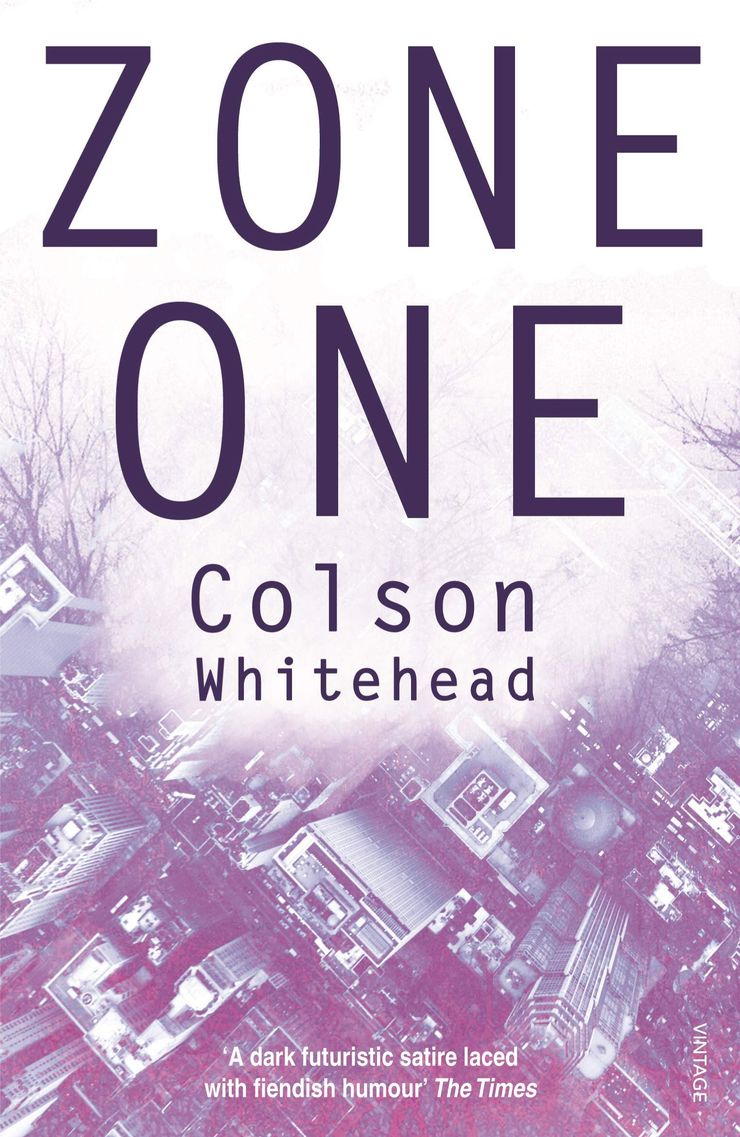
Pulitzer Prize-winning novelist Colson Whitehead was inspired to write this apocalyptic sci-fi novel because of his teenage fascination with the work of Stephen King and Issac Asimov. A plague has ravaged the planet, and the population is divided into the living and the living dead. Mark Spitz is working on a task force to clear the infested from ‘Zone One’, but things quickly go from bad to worse . . .
Recursion
by Blake Crouch
This high concept sci-fi thriller asks the question: what if someone could rewrite your entire life? When Detective Barry Sutton is called to help a woman threatening to jump from a building, he’s unaware of the series of events the incident will trigger. Unable to stop the woman taking her own life, the last words she says to him are ‘My son has been erased.’ As Barry begins to investigate her case, he finds she’s not the only one making such claims. All over the country, people are waking up to different lives, an epidemic the media have dubbed ‘False Memory Syndrome’. But what if the cause is more sinister than a disease?
A Memory Called Empire
by Arkady Martine
Arkady Martine's debut sci-fi book is an immersive political space opera for fans of Ann Leckie and Iain M. Banks. A Memory Called Empire introduces the idea of a technology by which a select few can carry their predecessors in their minds and take advantage of their wisdom and memories. Ambassador Mahit Dzmare travels to the Teixcalaanli Empire’s interstellar capital, eager to take up her new post. Yet when she arrives, she discovers her predecessor was murdered. But no one will admit his death wasn’t accidental – and she might be next. This is the first book in the Texicalaan duology.
War of the Worlds
by H. G. Wells
The inspiration for countless science fiction stories and novels, H. G. Wells’s sci-fi classic is a must for any science fiction fan’s bookshelf. Written in semi-documentary style, the 1938 radio adaptation famously caused panic when listeners believed the fictional new bulletins were real, and this novel about a terrifying alien invasion still grips readers to this day.
The Time Machine
by H. G. Wells
H. G. Wells was among the first to express a plausible scientific method of time travel, and he also coined the term ‘time machine’ in this science fiction novella. The book has been adapted into three different films, and still influences science fiction writers today. The Time Machine is a pioneering classic that is considered by many to be the most influential sci-fi book of all time.
Shards of Earth
by Adrian Tchaikovsky
Shoot into outer space with Adrian Tchaikovsky's high-octane, far-future space opera series. Eighty years ago, Earth was destroyed by an alien enemy. So mankind created enhanced humans such as Idris – who could communicate mind-to-mind with our aggressors. Then these ‘Architects’ simply disappeared and Idris and his kind became obsolete. Now, Idris and his crew have something strange, abandoned in space. It’s clearly the work of the Architects – but are they really returning? Shards of Earth is the first epic story in the Final Architecture trilogy.
Binti
by Nnedi Okorafor
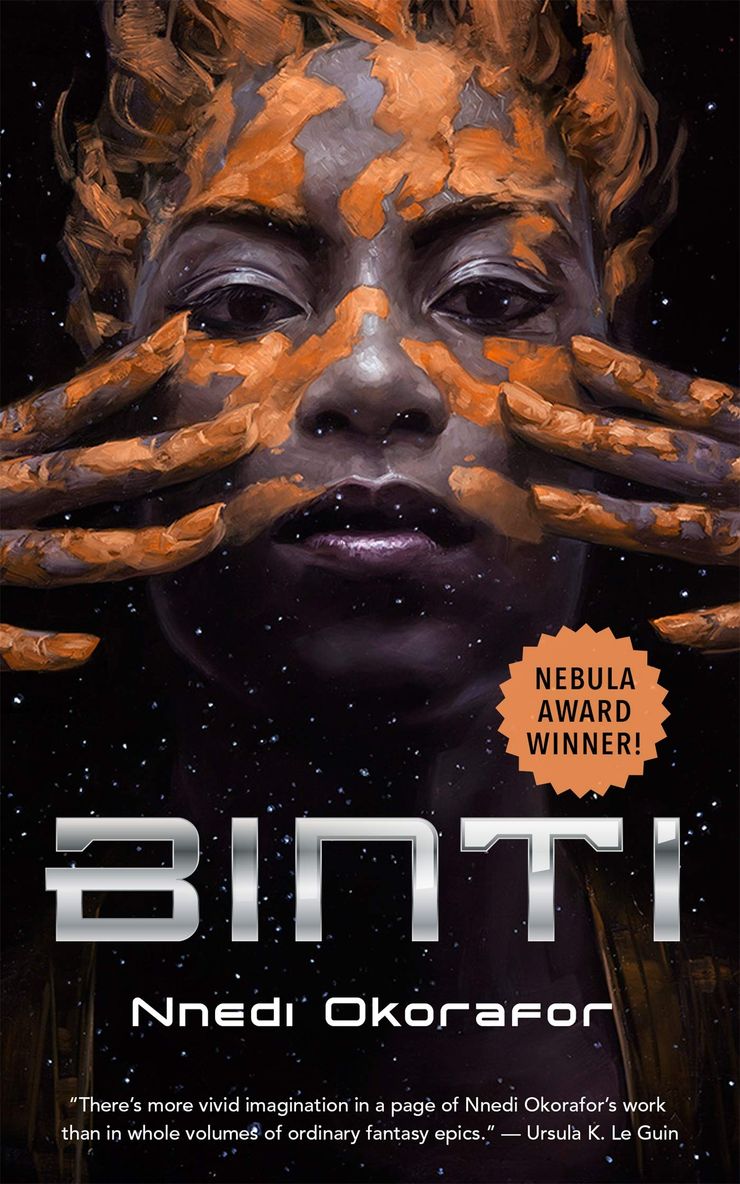
Binti is the first person in her family to be accepted at the prestigious Oomza University, but to take up the place will mean leaving all she knows for a new life travelling among the stars. And there are dangers in this new life, for the university has long warred with a nightmare alien race called the Meduse . . . This Hugo Award-winning novella is the first in Nnedi Okorafor’s science fiction series.
Dune
by Frank Herbert
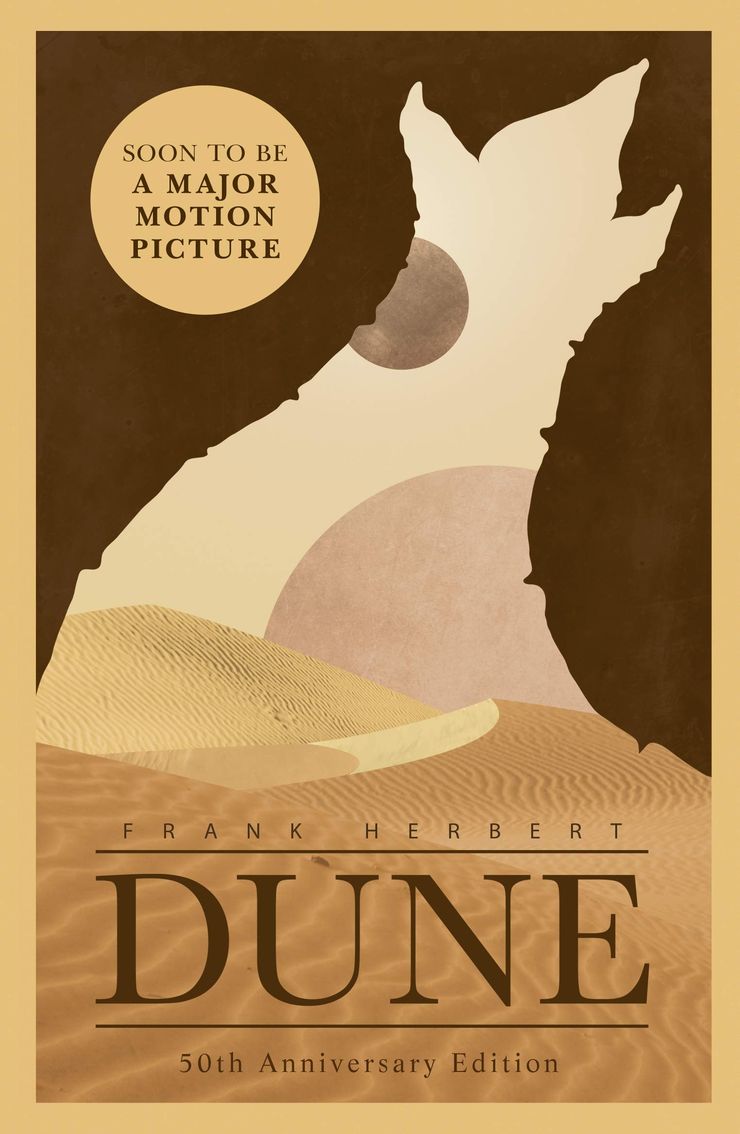
Frank Herbert’s science fiction classic is one of the bestselling sci-fi books of all time and was adapted into the film of the same name directed by David Lynch. Set 20,000 years in the future, the universe depends on the supply of Melange, a rare element, which can be used for everything from extending life-spans to interstellar travel. This precious element is found on only a single planet, Arrakis. And whoever controls Arrakis controls the universe . . .
Frankenstein
by Mary Shelley
Mary Shelley's story of a man who creates a monster he cannot control was a precursor of modern science fiction and a must-read for any sci-fi fans wanting to understand the history of the genre. Victor Frankenstein, a brilliant but wayward scientist, builds a human from dead flesh. Horrified at what he has done, he abandons his creation. The hideous creature learns language and becomes civilized but society rejects him. Spurned, he seeks vengeance on his creator.
Nineteen Eighty-Four
by George Orwell
George Orwell’s Nineteen Eighty-Four is one of the most famous and influential novels of the 20th century. The year is 1984. The country is impoverished and permanently at war, people are watched day and night by Big Brother and their every action and thought is controlled by the Thought Police. Winston Smith works in the department of propaganda, where his job is to rewrite the past. Spurred by his longing to escape, Winston rebels. This terrifying dystopia, which he created in a time of great social and political unrest, remains acutely relevant and influential to this day.
Lovecraft Country
by Matt Ruff
An imaginative blend of magic, power, hope, and freedom that stretches across time, touching diverse members of two Black families, Matt Ruff's sci-fi horror is a devastating kaleidoscopic portrait of racism – the terrifying specter that continues to haunt us today. Set in Chicago, 1954 – Atticus Turner embarks on a road trip, along with his uncle and childhood friend, in search of his missing father. But soon they encounter both mundane terrors of white America and malevolent spirits that seem straight out of the weird tales Uncle George devours.
The Black Locomotive
by Rian Hughes
Prepare for a riveting tale that explores the delicate balance between progress and the timeless wisdom of bygone eras. Within the robust framework of London's concrete and steel, the city thrives on innovation and progress. However, as the clandestine Crossrail extension beneath Buckingham Palace is constructed, an enigmatic anomaly emerges, presenting an archaeological enigma that has the potential to reshape our perception of history and the very genesis of London. Should our contemporary society crumble, we may find ourselves compelled to embrace the ancient technologies of the past to safeguard our future.
Kindred
by Octavia E. Butler
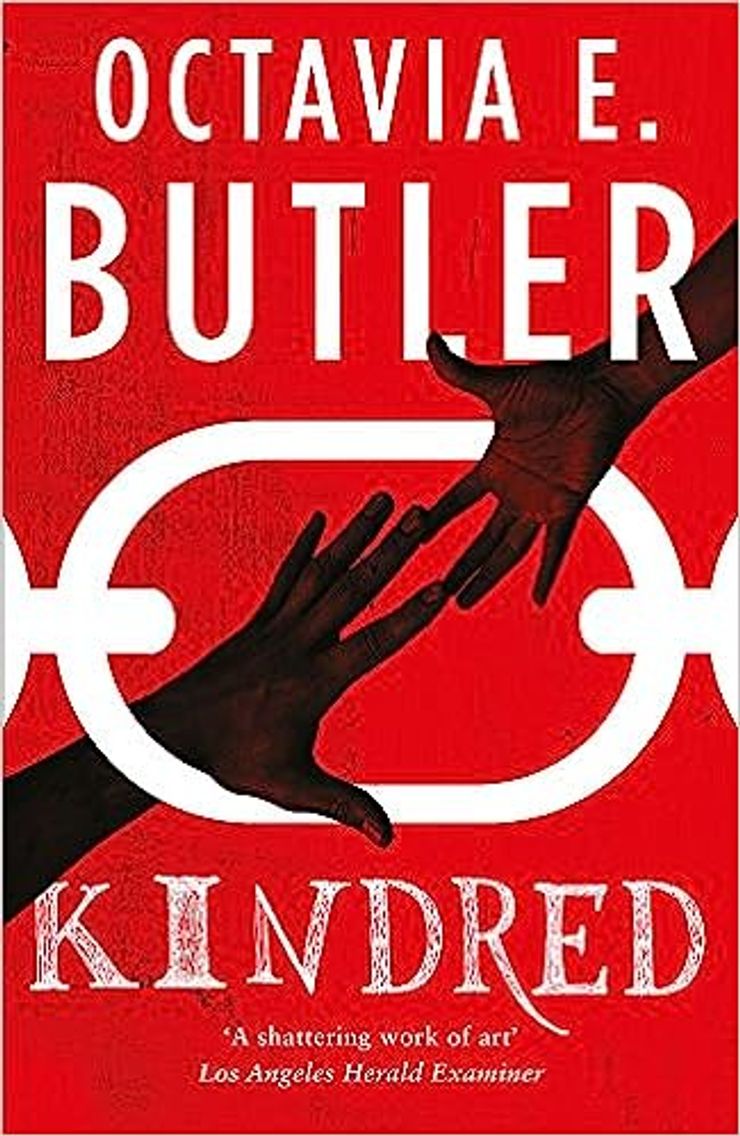
The first science fiction written by a black woman, Kindred is a cornerstone of American literature. Dana's 26th birthday takes a surreal turn when dizziness overcomes her during a move into a new apartment. In an instant, she is transported to a verdant wood by a sprawling river, where a distressed child's cries pierce the air. Acting instinctively, she rescues him, only to face the alarming sight of an aged rifle in the hands of the boy's father. The next thing she knows she's back in her apartment, soaking wet. It's the most terrifying experience of her life . . . until it happens again.
2001: A Space Odyssey
by Arthur C. Clarke
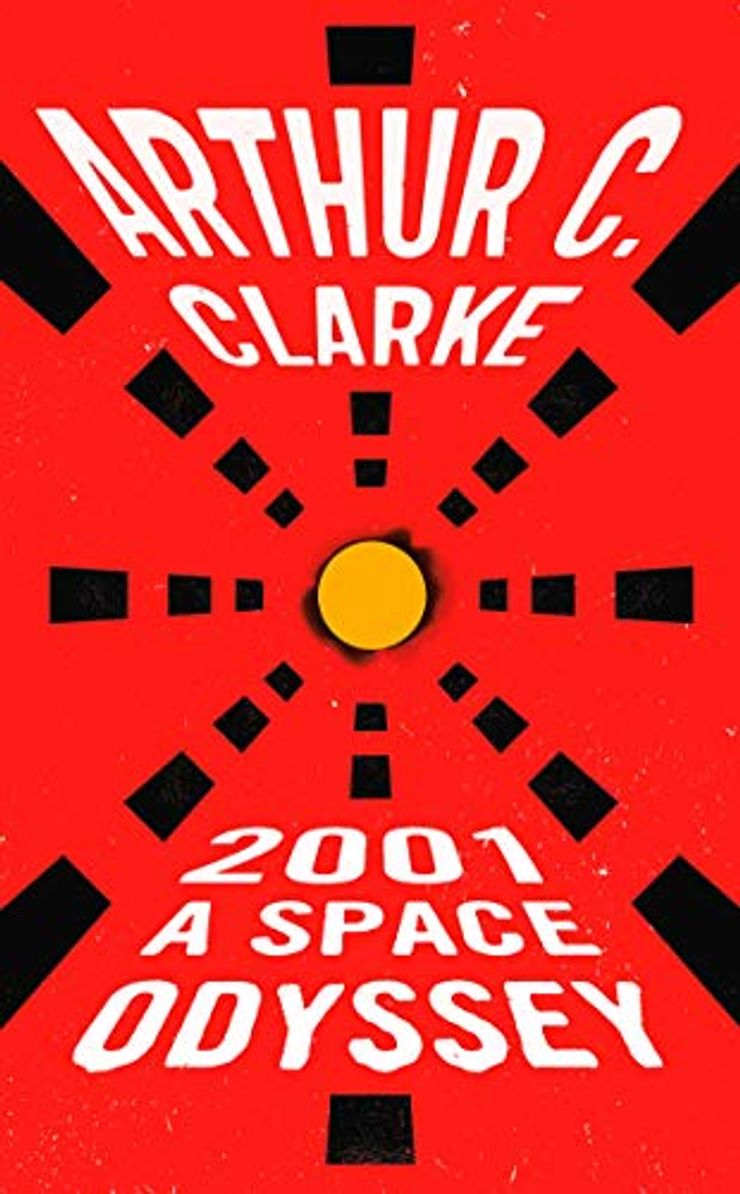
2001: A Space Odyssey takes readers from the ancient savannas of Africa to the outer reaches of our solar system. It is an allegory of humanity's quest for knowledge in the vast universe, and the universe's mysterious response. Follow the crew of the Discovery spacecraft as they venture towards Saturn, their mission overseen by the formidable HAL 9000, an advanced AI that challenges the boundaries of human intellect. Exploring themes of space exploration, technological risks, and the bounds of human potential, this marvel remains an enduring classic of monumental proportions.
Consider Phlebas
by Iain M. Banks
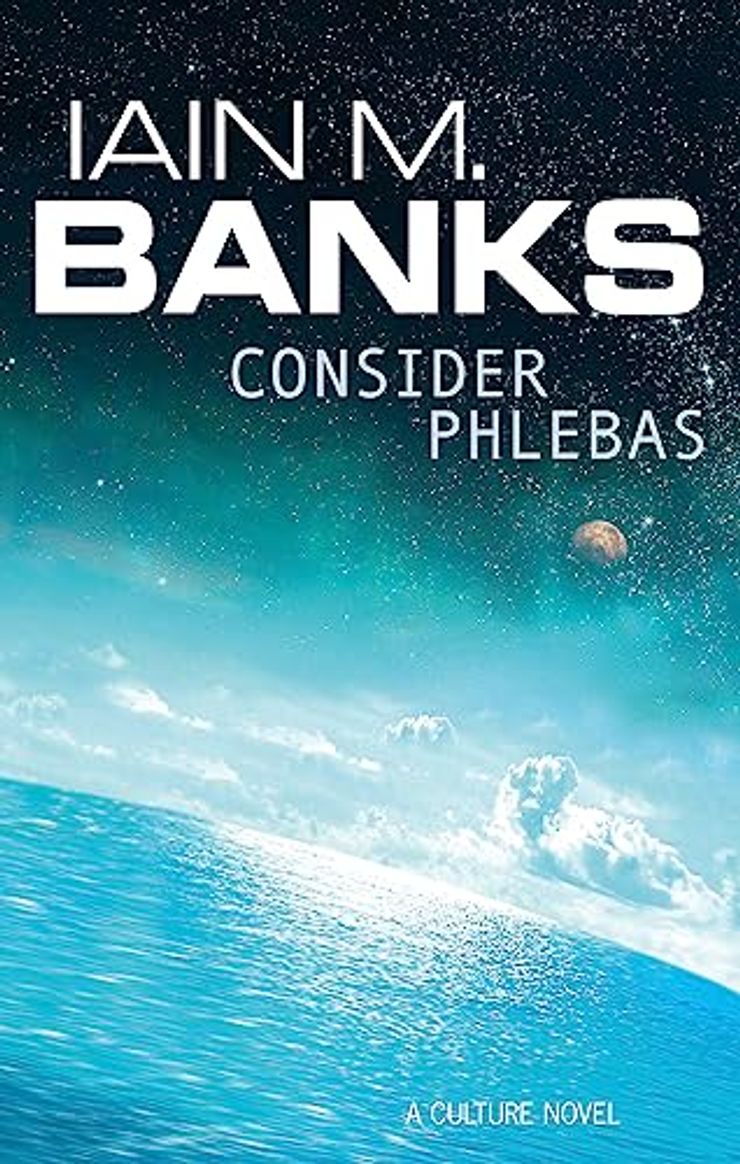
First published in 1987, Consider Phlebas is the first book in Iain M. Banks's The Culture series, a classic space opera about an interstellar post-scarcity society. The Idirans fought for their Faith, while the Culture defended its moral existence. Within the cosmic conflict, an individual crusade. Deep within a fabled labyrinth on a barren world, a Planet of the Dead proscribed to mortals, lay a fugitive Mind. Both the Culture and the Idirans sought it. It was the fate of Horza, the Changer, and his motley crew of unpredictable mercenaries, human and machine, actually to find it, and with it their own destruction.
Foundation
by Isaac Asimov
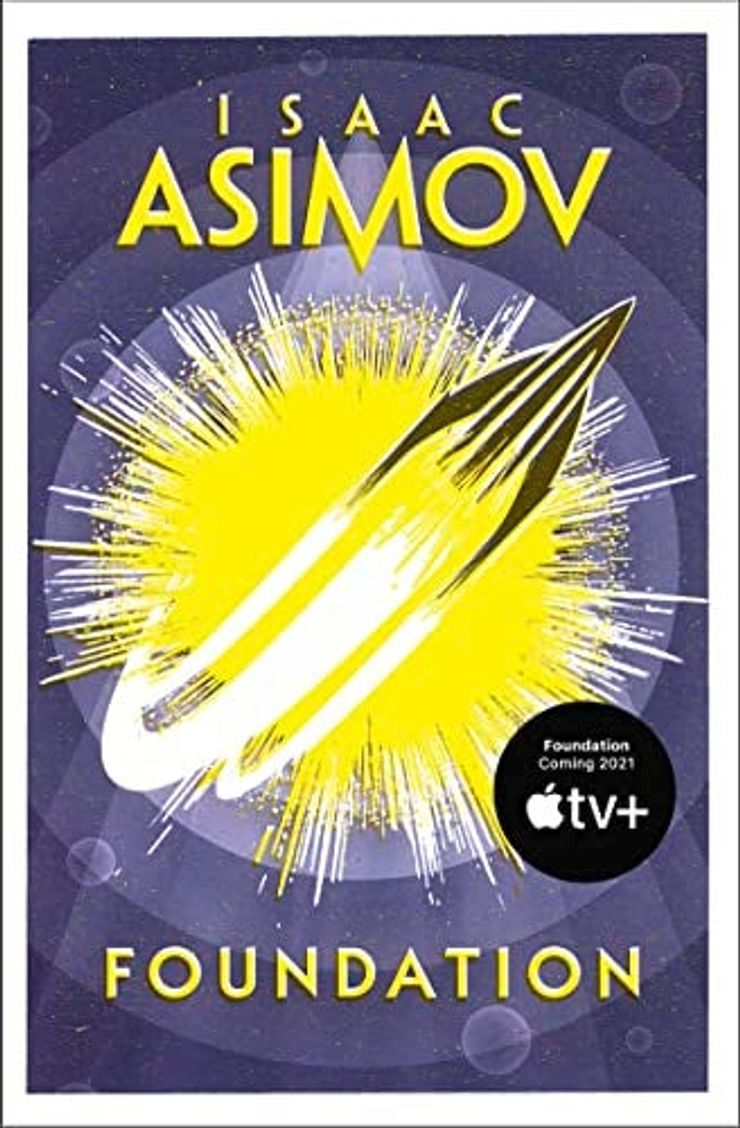
In the first novel in Isaac Asimov's classic science-fiction masterpiece, we travel to a sprawling galaxy on the brink of collapse. But a brilliant mathematician named Hari Seldon predicts the impending downfall. To safeguard civilization's future, Seldon establishes the Foundation, a covert organization tasked with preserving knowledge and shaping the course of history. As empires rise and fall, political intrigue intertwines with scientific brilliance, offering a captivating blend of epic scope, intricate plotting, and profound exploration of humanity's destiny.
Leviathan Wakes
by James S. A. Corey

Set in a future where humanity has colonized the solar system, tensions between Earth, Mars, and the Belt threaten to ignite a catastrophic war. Amidst this turmoil, a missing person's case leads a hardened detective and a disillusioned ship captain to uncover a conspiracy that could plunge the entire system into chaos. James S.A. Corey weaves a masterful tale, blending exhilarating action, intricate world-building, and complex characters. With its seamless blend of mystery, political intrigue, and interstellar adventure, Leviathan Wakes is the first book in The Expanse series, now also a major TV series.
Do Androids Dream of Electric Sheep?
by Philip K. Dick
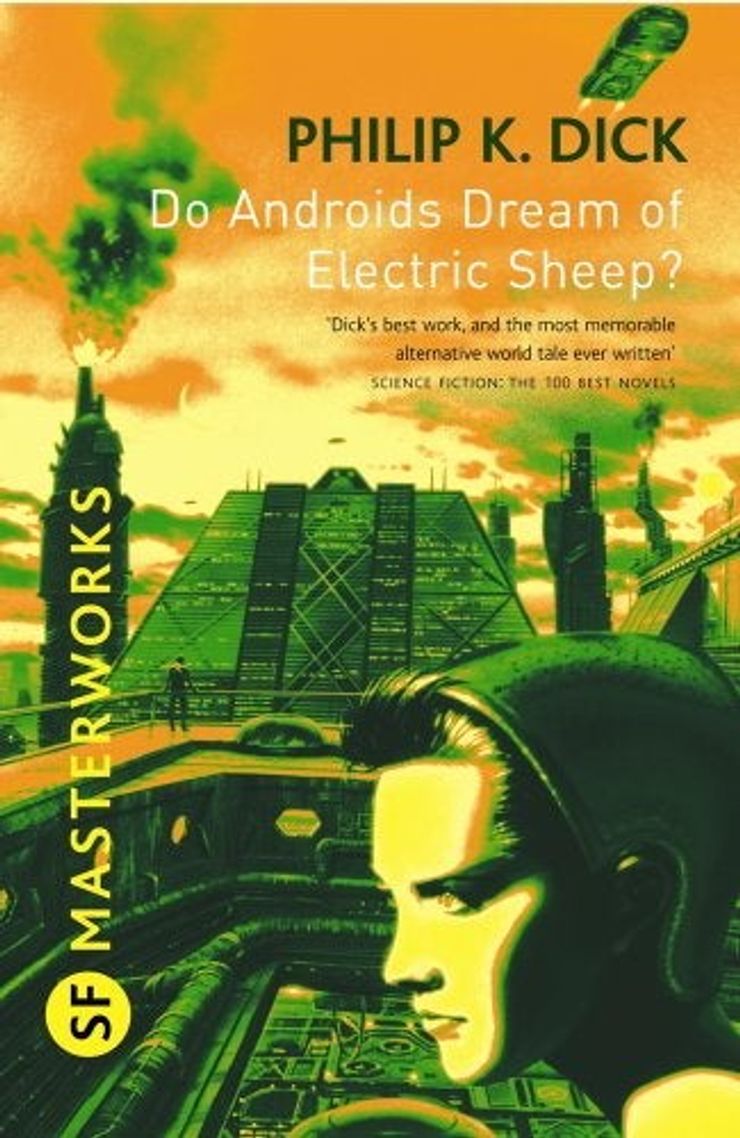
Set in a post-apocalyptic future, where the line between humans and androids blurs, Do Andorids Dream of Electric Sheep? follows Rick Deckard, a bounty hunter tasked with tracking down rogue androids hiding among society. As Deckard's pursuit intensifies, moral dilemmas arise, blurring the boundaries of empathy and identity. Dick's mesmerizing prose transports you to a world filled with existential questions, intricate plot twists, and profound reflections on what it means to be human. This masterpiece served as the basis for the 1982 film Blade Runner and is a dystopian sci-fi must-read.
Brave New World
by Aldous Huxley

Largely set in a futuristic World State, inhabited by genetically modified citizens and an intelligence-based social hierarchy, Brave New World anticipates huge scientific advancements in reproductive technology, sleep-learning, psychological manipulation and classical conditioning that are combined to make a dystopian society which is challenged by only a single individual: the story's protagonist. With its seamless fusion of science fiction, social critique, and philosophical depth, the book challenges societal norms, sparks introspection, and reveals the delicate balance between freedom and conformity.
The Martian
by Andy Weir
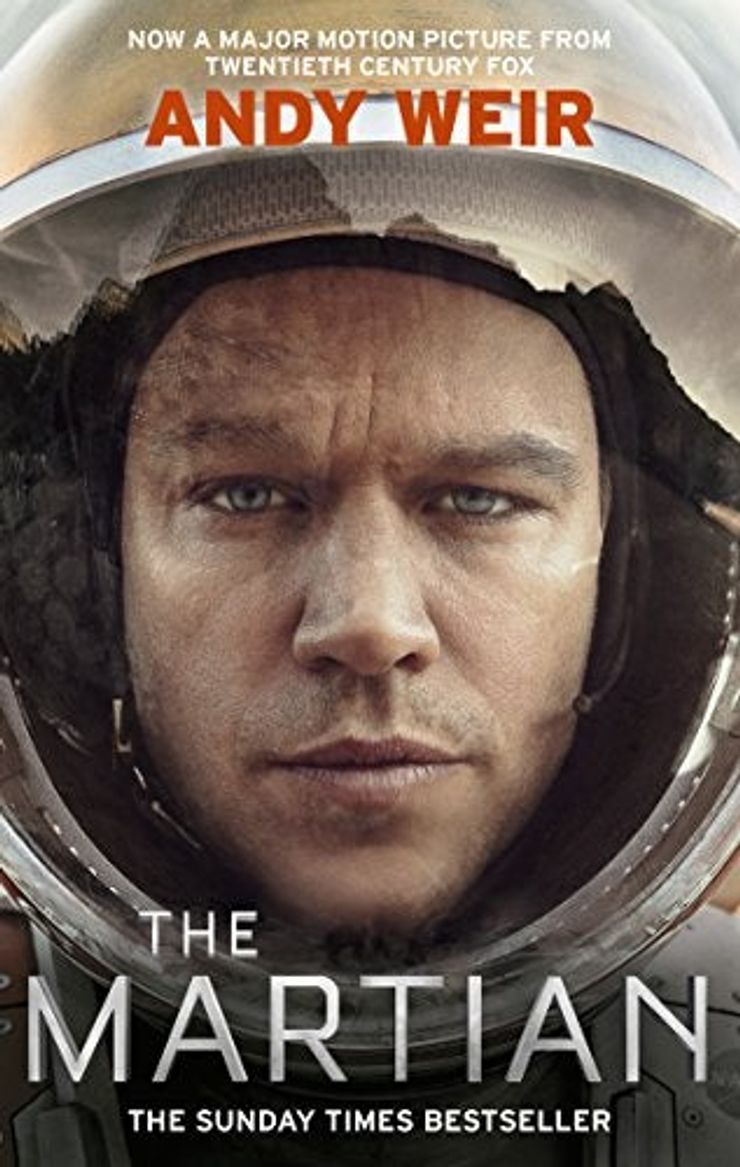
A survival story for the 21st century and the international bestseller behind the major film by Ridley Scott. Stranded alone on Mars after a mission gone awry, astronaut Mark Watney must summon every ounce of his resourcefulness and resilience to survive. With limited supplies, daunting challenges, and a tenacious spirit, Watney uses his scientific expertise to defy the odds and find a way back home. Weir's masterful storytelling, filled with equal parts wit and tension, immerses you in the harsh beauty of Mars while showcasing the indomitable human spirit.
Rabbits
by Terry Miles
Rabbits is an electrifying, compulsive read based on the hit podcast from the Public Radio Alliance – perfect for fans of Stranger Things and Black Mirror. Rabbits is a secret, dangerous and sometimes fatal underground game. The rewards for winning are unclear, but there are rumours of money, CIA recruitment or even immortality. Or it might unlock the universe’s greatest secrets. But everyone knows that the deeper you get, the more deadly the game becomes – and the body count is rising. The eleventh round is about to begin, and what happens in the game, stays in the game . . .
Jack Four
by Neal Asher
Set in the same world as Neal Asher's acclaimed Polity universe, Jack Four is a thrilling, fast-paced standalone novel packed with action. Jack Four – one of twenty human clones – has been created to be sold. His purchasers are the alien prador and they only want him for their experimentation program. But there is something different about Jack. No clone should possess the knowledge that’s been loaded into his mind. And no normal citizen of humanity’s Polity worlds would have this information. . .









